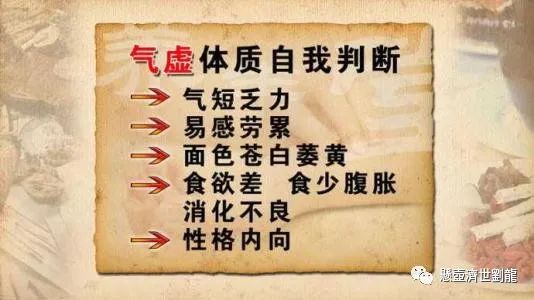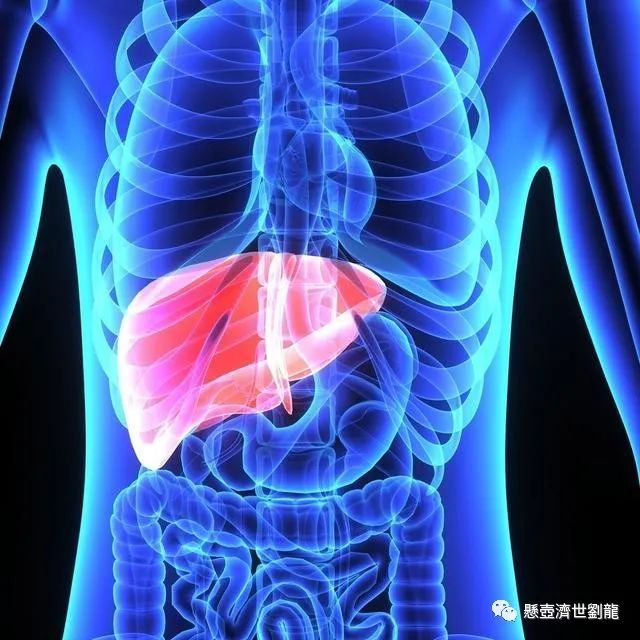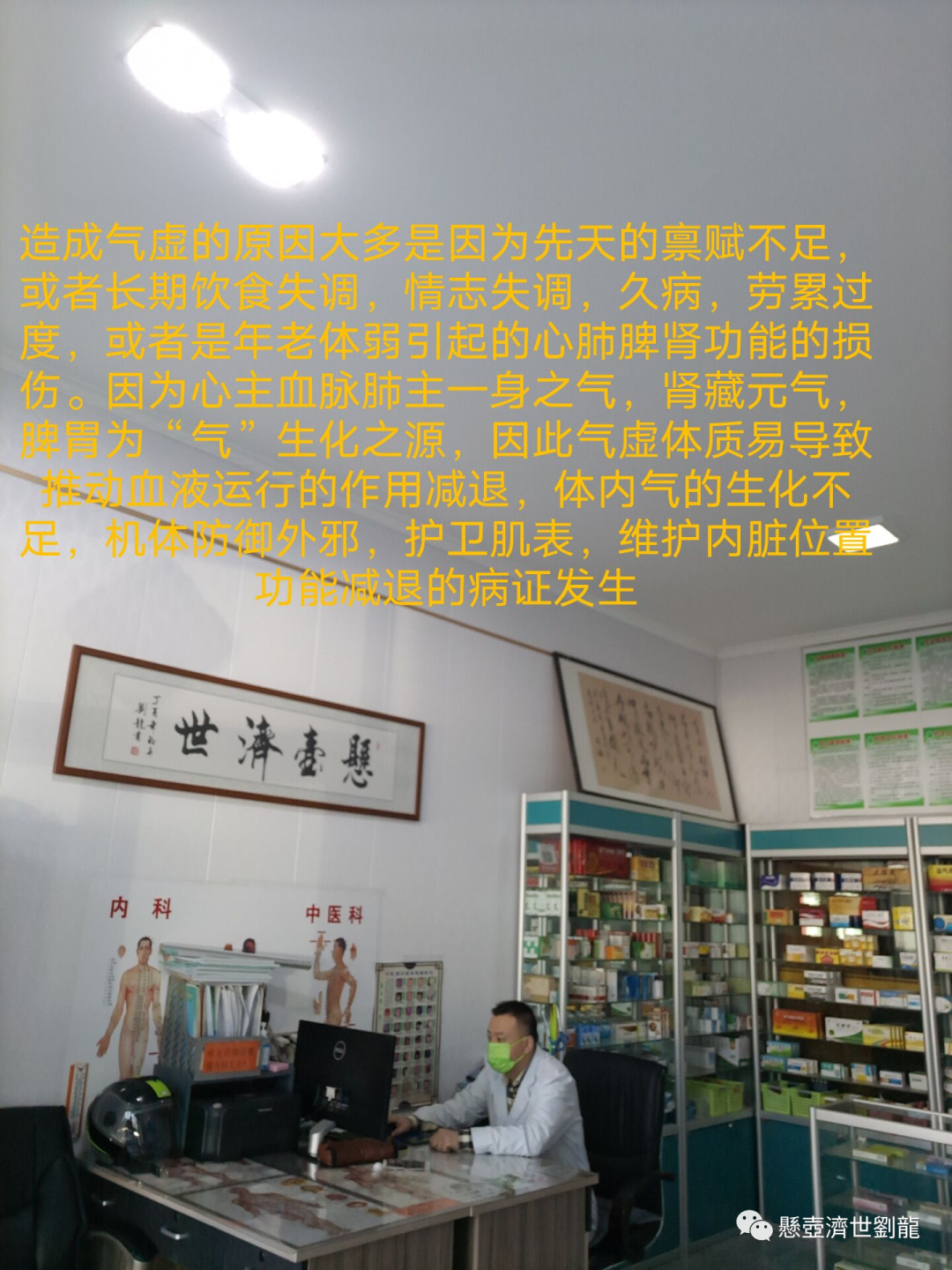
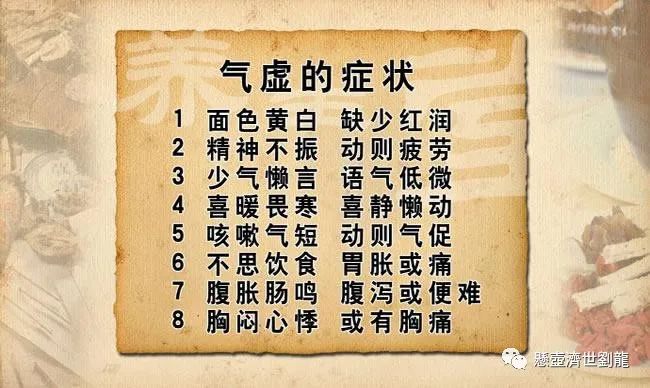
The causes of Qi deficiency include excessive fatigue. Traditional Chinese Medicine states: “Labor consumes Qi.” When a person is extremely busy and under significant stress for a period, their immune system becomes particularly weak, making them more susceptible to colds. If you maintain a regular intake of Qi within a manageable range and replenish new energy through adequate sleep each night, your Qi consumption will slow down, and you will have sufficient mental state and energy to face daily life and work. My grandmother often said, “Strength is a strange thing; what you use today will return tomorrow.” This strength refers to a type of energy, or Qi, produced within our bodies. If your lifestyle is irregular, such as not eating when you should or not sleeping when you should, the original Qi and energy you consume will not be continuously generated. If you overdraw your energy when you are young, you will have to endure a life filled with ailments as you age, leading to poor physical condition.
Qi deficiency affects the five organs. Qi is the most fundamental substance that constitutes and maintains human life activities, belonging to the category of human essence and Qi. The essence and Qi of the human body are stored in the five organs, “the so-called five organs store essence and Qi without leaking.” Therefore, from the perspective of the source of Qi, the Qi that constitutes and maintains human life activities mainly consists of congenital essence and acquired essence. From the perspective of the generation of Qi and its relationship with the organs, all five organs store essence and Qi, especially the lungs, spleen, and kidneys. Qi deficiency is often caused by insufficient congenital endowment, lack of nourishment after birth, excessive labor consumption, prolonged illness without recovery, or reduced function of the lungs, spleen, and kidneys, leading to insufficient Qi generation. In terms of the causes of disease, symptoms, and pulse patterns, Qi deficiency is very similar to the modern medical concept of “sub-health.” The fundamental cause of sub-health is insufficient Yin, Yang, Qi, and blood, and low organ function, which aligns with the concepts of original Qi deficiency and Qi deficiency.
Qi deficiency can affect various aspects of the body, such as when Qi deficiency leads to weak defense against external pathogens, resulting in excessive sweating; when Qi deficiency causes the muscles of the limbs to be poorly nourished, leading to fatigue and weakness; when Qi deficiency results in the failure of clear Yang to rise, causing mental fatigue and symptoms like dizziness and tinnitus; when Qi deficiency leads to insufficient strength to promote blood circulation, resulting in weak or thin pulse; when Qi deficiency causes metabolic disorders of fluids, leading to phlegm accumulation and potentially resulting in edema; Qi deficiency can also lead to reduced organ function, manifesting as a series of signs of organ weakness.
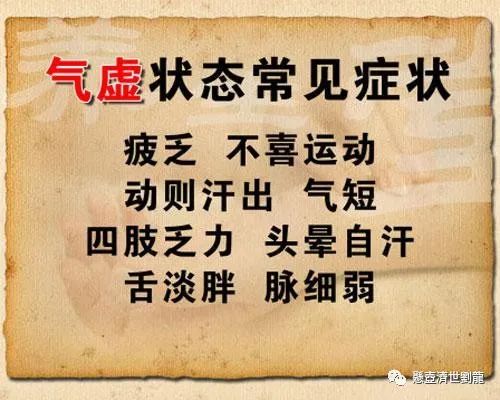
1. Lung Qi Deficiency
The lungs govern Qi, control respiration, connect with the skin and hair, and regulate water pathways. When Lung Qi is deficient, its functions of dispersing and descending, controlling respiration, regulating fluid metabolism, and resisting external pathogens weaken, leading to symptoms such as shortness of breath, spontaneous sweating, low voice, cough, asthma, chest tightness, susceptibility to colds, and even edema and difficulty urinating.
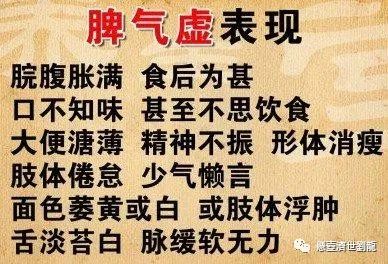
2. Kidney Qi Deficiency
The kidneys reside in the lower back, store essence and Qi, and control the opening and closing of the two Yin. Essence and Qi nourish the five organs and ascend to enrich the brain and marrow. When Kidney Qi is deficient, it fails to nourish, leading to symptoms such as fatigue, dizziness, forgetfulness, weakness in the lower back and knees, frequent clear urination, and pale tongue with weak pulse. If the kidneys fail to receive Qi, breathing becomes shallow and rapid, with more exhalation than inhalation.
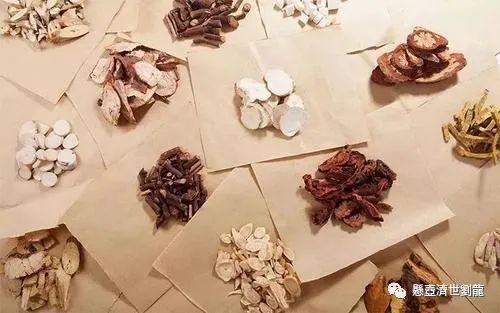
3. Spleen Qi Deficiency
The spleen is located in the middle jiao, governs transformation and transportation, controls the rising of clear Qi, and regulates blood circulation. When Spleen Qi is weak, it cannot transform and transport the essence of food and fluids, leading to insufficient generation of Qi and blood, with symptoms such as reduced appetite, discomfort after eating, fatigue, weight loss, loose stools, pale yellow complexion, pale tongue with thin coating, and weak pulse.
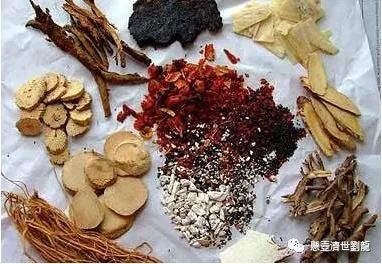
4. Heart Qi Deficiency
The heart governs blood vessels and houses the spirit. When Heart Qi is deficient, it cannot promote blood circulation or nourish the spirit, leading to symptoms such as palpitations, shortness of breath, excessive sweating, worsening with exertion, fatigue, pale tongue, and weak pulse.
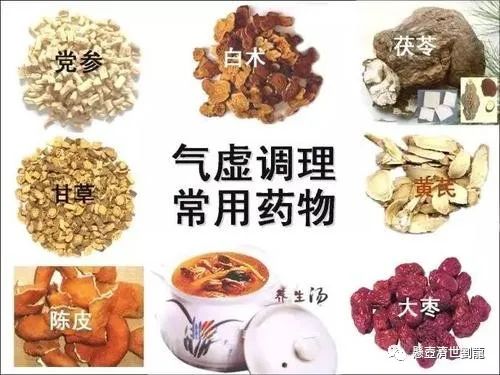
5. Yang (Qi) Deficiency
Qi deficiency may present with a pale complexion, dizziness, shortness of breath, fatigue, and in severe cases, fainting. Yang deficiency, in addition to the symptoms of Qi deficiency, also includes cold limbs, spontaneous sweating, a deep and slow pulse, or a weak pulse, and a pale tongue with a white coating.
Qi deficiency is one of the common constitutions in children, often manifesting as nasal allergies, asthma, digestive disorders, short stature, bedwetting, susceptibility to colds, obesity, and heart disease. Children with Qi deficiency should pay attention to their diet. They should cultivate normal eating habits, such as regular meals and avoiding snacks, and refrain from consuming overly sweet, fatty, or salty foods and drinks before meals to prevent early satiety and reduced appetite. Regular sleep and moderate outdoor exercise can help prevent the worsening of Qi deficiency. When selecting foods, it is important to consider the properties of the food: For those with Qi deficiency, the diet should include foods that have Qi-replenishing properties, are neutral in nature, and have a sweet or warm taste, as well as nutritious and easily digestible foods. Avoid foods that deplete Qi, such as raw, cold, greasy, or spicy foods.
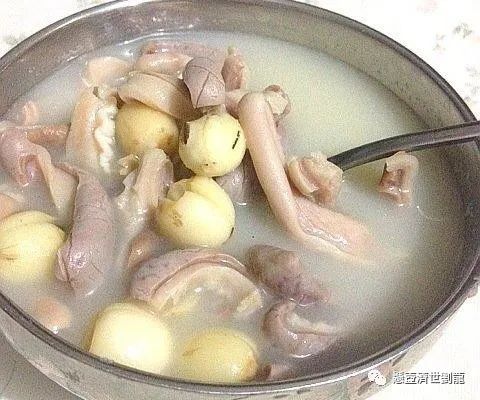
First, in Traditional Chinese Medicine, Qi is divided into three types: clear Qi, food essence Qi, and congenital Qi. These three types of Qi are generated by three organs: the lungs, spleen, and kidneys. Lung Qi deficiency can lead to persistent cough, recurrent respiratory infections, and shortness of breath; Spleen and Stomach Qi deficiency can result in indigestion, poor appetite, and loose stools; Kidney Qi deficiency can manifest as weakness in the lower back and knees, a decline in overall mental state, and decreased sexual function.
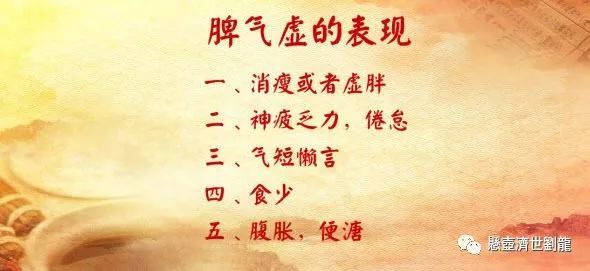
1. Eat well at three meals to nourish the spleen and stomach. Traditional Chinese Medicine believes that the spleen and stomach are the foundation of postnatal life and the source of Qi and blood generation. Therefore, nourishing the spleen and stomach is crucial for Qi replenishment. In daily life, we should avoid spicy, greasy, and stimulating foods, as they are not conducive to the digestion and absorption of the spleen and stomach, and will increase the burden on the spleen and stomach, depleting Spleen Qi and worsening Qi deficiency. Common foods that strengthen the spleen and stimulate appetite include hawthorn, pumpkin, and millet. Additionally, red bean, coix seed, and lotus seed porridge is particularly recommended, as it can strengthen the spleen and eliminate dampness, helping the spleen and stomach restore normal physiological function.
2. Engage in aerobic exercise under sunlight. Life is movement. Regular aerobic exercise can strengthen the heart and limb muscles and improve lung capacity. Furthermore, engaging in physical activities in the sun can help replenish Yang Qi. A gentle reminder: if Qi deficiency is severe, it is advisable to walk slowly to prevent excessive Qi depletion and accidents.
3. Go to bed early and rise early, avoiding excessive physical and mental labor. In addition to Qi deficiency caused by insufficient Qi, excessive depletion is also an important cause. Therefore, in our daily work, we should pay attention to balancing work and rest, minimize staying up late, and cultivate good living habits. When facing stress, it is important to learn to let go; one must give up to gain, and not let stress overwhelm your body.

Consultation WeChat ID


